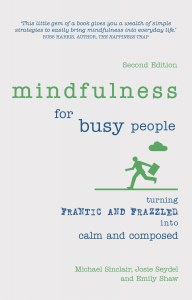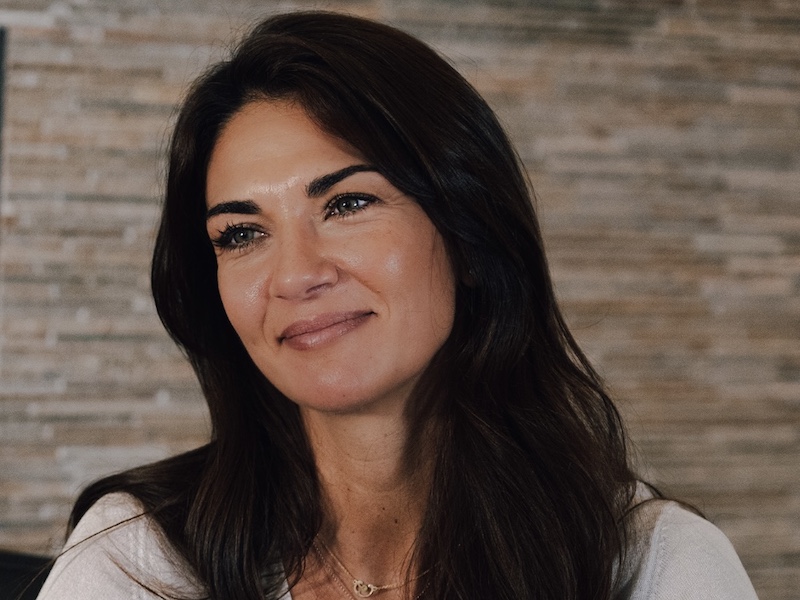The popularity of mindfulness is growing at an increasingly rapid rate which isn’t surprising given the wealth of scientifically proven benefits.
Research has shown how mindfulness practice can change areas of the brain associated with improved cognitive functioning and the ability to regulate emotions, helping people to manage all kinds of difficulties including depression, anxiety, work-related stress, relationship problems and much more.
Mindfulness is just a word that is used to attempt to translate a particular way of attending to your experience; that is your thoughts, feelings, sensations, urges and what you can see, hear, feel, smell and taste. Other terms that may feel a little more familiar or palatable are: awareness, consciousness, acknowledgement, observation or attention. Mindfulness is all about showing up to your life, turning the lights up on the stage of your rich life experience to illuminate all that is going on with your observation and enjoyment. You will have experienced the beauty of mindful awareness numerous times in your life, times when you have brought your awareness to your experience in a purposeful and particular way with curiosity and acceptance. Most people have described such an experience when sitting in a serene setting, perhaps on a mountain top, or when holding a new born in their arms. During these times you may find you become fully immersed in engaging with your experience of the present moment allowing events to naturally unfold moment to moment as you observe and take it all in, even losing track of time as you do so and somehow all your cares and worries seem far away.
The good news is that we can be mindful irrespective of the changing world around us or the ever-changing feelings and thoughts that arise within us. Mindfulness practices take many forms but essentially all of them share elements of cultivating a disciplined development of awareness seeing and experiencing the moment just how it is.
Experience it for yourself right now with this practice that you can try no matter what you are doing:
- For the next 10 seconds try to notice and acknowledge the sensations in your body where your body makes contact with the surface in which you’re sitting, laying or standing.
- Not so much thinking about the sensations, but curiously exploring and feeling them.
- Notice the sense of touch of your body making contact with the surface.
- Just resting your awareness whilst you notice and concentrate on the sensation for the next 10 seconds.
Through practicing mindfulness in your everyday activities, you can train your mind to be more present, enabling you to stay focused and productive, as well as ensuring that you take more enjoyment from your life. You can turn the very ordinary in to something much more extraordinary.
Try turning your experience of drinking your favorite brew from a mindless routine into a curious exploration:
- First, hold your cup of coffee (or any drink!) in both hands (and, if you usually do this, try holding it in some other way). Notice the weight of the cup with the liquid inside it. Feel the heat of the cup against your skin.
- Bring the cup closer to your face and explore the aroma, soaking it up as it fills the space in front of your face.
- If you find that your attention wanders or becomes distracted that’s ok. When this happens just gently guide it back to noticing your coffee.
- Now, as you bring the cup closer to your mouth in anticipation of the first sip, notice the movement in your body, hands and of your lips.
- Slowly take a sip and notice the temperature of the warm liquid enter your mouth and any physical responses in your body.
- Hold the liquid in your mouth as you experience the taste of coffee.
- Before you swallow, notice the natural impulse to swallow. Once you have swallowed, acknowledge how your body is now one sip of coffee heavier.
Using mindfulness enables you to create some space from your busyness and stress and meet these experiences with self-compassion. Instead of racing head at full speed, put on the brakes, S.L.O.W. down and redirect yourself to the life that really matters to you.
S Stop whatever you are doing and bring your awareness to your breathing.
L Let thoughts, opinions, judgments and urges be.
O Open up your heart, body and mind to what you are feeling.
W Where is most important for you to put your attention right now? (For example, taking care of yourself, being present with friends/family, resting the mind, finishing off important work)
Try these practices regularly and begin to notice the many benefits that mindfulness can bring to your life.
 About the authors
About the authors
Dr Michael Sinclair, Josie Seydel & Dr Emily Shaw are Practitioner Psychologists at City Psychology Group in London, and the authors of Mindfulness for Busy People: turning frantic and frazzled into calm and composed (2nd Edition)









